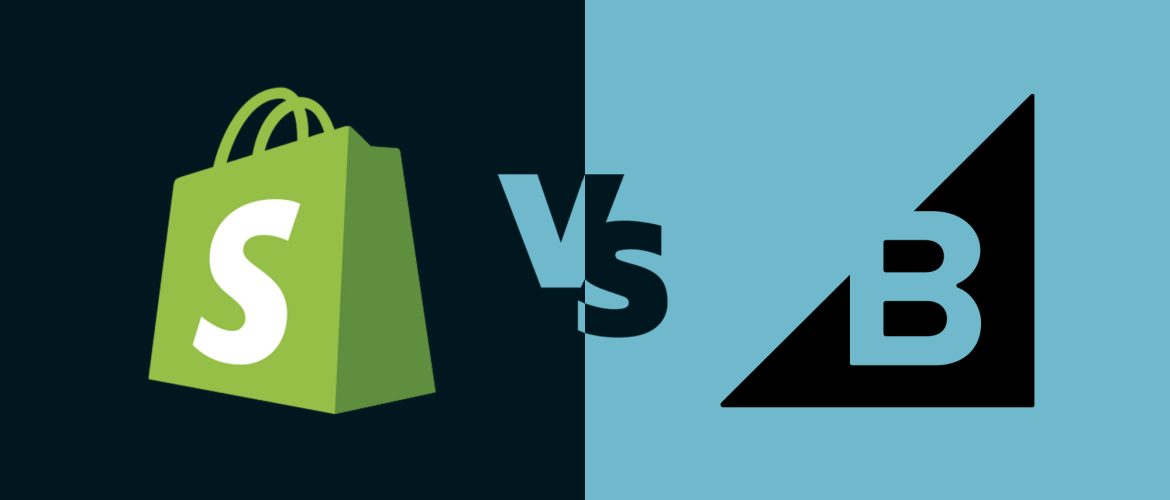Shopify and BigCommerce are two leading giants in the world of ecommerce platforms. Both offer robust features to create, manage, and grow your online store. But with distinct strengths and weaknesses, choosing the right one depends on your specific needs and business goals. Here’s a comprehensive breakdown of both ecommerce platform to help you make an informed decision.
Pricing & Fees:
Base Price: Both ecommerce platforms offer tiered pricing plans with similar starting costs. However, the key difference lies in transaction fees. Shopify charges an additional 2% per sale for merchants who don’t use their proprietary payment gateway, Shopify Payments. BigCommerce, on the other hand, doesn’t impose such penalties, making it potentially more cost-effective for businesses processing a high volume of transactions.
Scalability: As your business grows, your pricing needs will evolve. BigCommerce’s plans scale with features, offering more built-in functionalities at higher tiers. Shopify, however, relies heavily on its app store to bridge feature gaps, potentially leading to additional subscription costs for third-party apps.
Ease of Use & Interface:
Learning Curve: Shopify boasts a user-friendly interface with a gentle learning curve. Its drag-and-drop store builder and intuitive design make it ideal for beginners. BigCommerce offers a more powerful feature set, which can come with a slightly steeper learning curve.
Customization: BigCommerce provides greater flexibility when customizing your store’s look and feel. It offers open-source coding for advanced users and a wider selection of themes compared to Shopify’s offerings.
Features & Functionality:
Out-of-the-Box Features: BigCommerce shines in this aspect. It includes several features like built-in SEO tools, product filtering, abandoned cart recovery, and a content delivery network (CDN) in its base plans. Shopify often requires installing additional apps from its app store to achieve similar functionalities, potentially increasing costs.
App Integrations: Both platforms offer app stores to extend functionality. Shopify boasts a massive app store with over 8,000 options, catering to a wider range of needs. However, many essential features in BigCommerce come built-in, reducing reliance on potentially expensive third-party apps.
Payment Processing & Security:
Payment Gateways: Both ecommerce platform integrate with a wide range of popular payment gateways, allowing you to choose the best fit for your region and customers.
Security: Both platforms prioritize security with industry-standard SSL certificates and PCI compliance.
Marketing & Sales:
Built-in Marketing Tools: Shopify offers a basic set of marketing tools, including email marketing and social media integration. BigCommerce provides more advanced marketing functionalities like built-in discounts and coupons.
Sales Channels: Both platforms allow you to sell across multiple channels, including social media marketplaces and online marketplaces like eBay.
Customer Support:
Both ecommerce platform offer 24/7 customer support through various channels like phone, email, and live chat.
Choosing the Right Ecommerce Platform:
Here’s a quick guideline to help you decide:
For Beginners: Shopify’s user-friendly interface and extensive app store make it a great choice for those starting out.
For Growing Businesses: BigCommerce’s built-in features, scalability, and cost-effectiveness for high-volume transactions cater well to growing businesses.
For B2B Businesses: BigCommerce offers features specifically suited for B2B transactions, like product variations, customer groups, and advanced pricing options.
For Design Customization: BigCommerce provides greater design flexibility with open-source coding and a wider theme selection.
Conclusion
Ultimately, the best ecommerce platform for you depends on your specific needs and priorities. Consider your technical expertise, budget, business size, and future growth plans. Both Shopify and BigCommerce offer free trials, allowing you to explore their functionalities firsthand before making a commitment. By carefully evaluating your requirements and leveraging the insights from this comparison, you can choose the platform that empowers your online store to thrive.
At BrandJaws, we excel in developing e-commerce websites tailored to your unique business needs and growth objectives. Our approach is centered around creating engaging interfaces, implementing effective lead generation strategies, and optimizing for seamless customer experiences. Let us partner with you to build an e-commerce platform that not only attracts visitors but also converts them into valuable leads and loyal customers. From capturing leads to nurturing lasting customer relationships, we’re committed to driving growth and success for your online business.


